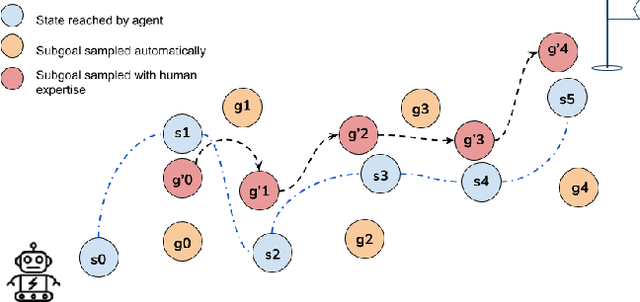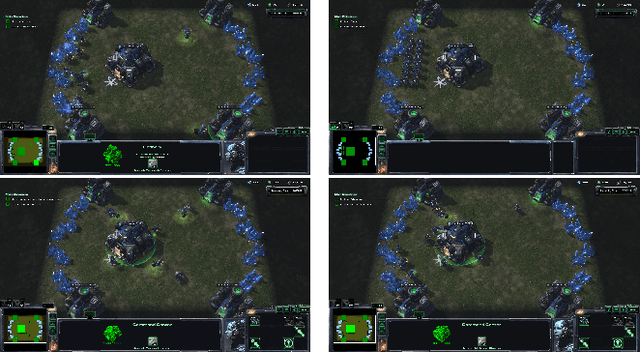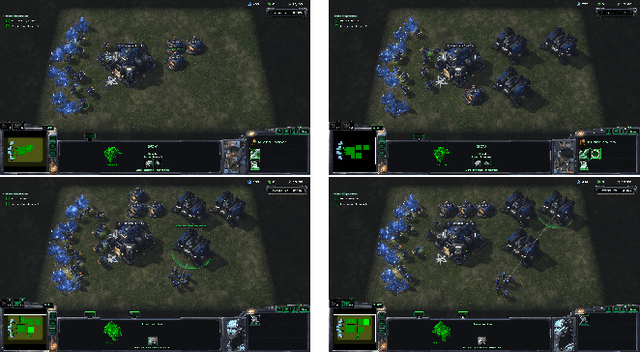Akshay Narayan
Towards Regulatable AI Systems: Technical Gaps and Policy Opportunities
Jun 22, 2023Abstract:There is increasing attention being given to how to regulate AI systems. As governing bodies grapple with what values to encapsulate into regulation, we consider the technical half of the question: To what extent can AI experts vet an AI system for adherence to regulatory requirements? We investigate this question through two public sector procurement checklists, identifying what we can do now, what we should be able to do with technical innovation in AI, and what requirements necessitate a more interdisciplinary approach.
Hierarchial Reinforcement Learning in StarCraft II with Human Expertise in Subgoals Selection
Aug 08, 2020



Abstract:This work is inspired by recent advances in hierarchical reinforcement learning (HRL) (Barto and Mahadevan 2003;Hengst 2010), and improvements in learning efficiency with heuristic-based subgoal selection and hindsight experience replay (HER)(Andrychowicz et al. 2017; Levy et al. 2019). We propose a new method to integrate HRL, HER and effective subgoal selection based on human expertise to support sample-efficient learning and enhance interpretability of the agent's behavior. Human expertise remains indispensable in many areas such as medicine (Buch, Ahmed, and Maruthappu 2018) and law (Cath 2018), where interpretability, explainability and transparency are crucial in the decision making process, for ethical and legal reasons. Our method simplifies the complex task sets for achieving the overall objectives by decomposing into subgoals at different levels of abstraction. Incorporating relevant subjective knowledge also significantly reduces the computational resources spent in exploration for RL, especially in high speed, changing, and complex environments where the transition dynamics cannot be effectively learned and modelled in a short time. Experimental results in two StarCraft II (SC2) minigames demonstrate that our method can achieve better sample efficiency than flat and end-to-end RL methods, and provide an effective method for explaining the agent's performance.
 Add to Chrome
Add to Chrome Add to Firefox
Add to Firefox Add to Edge
Add to Edge